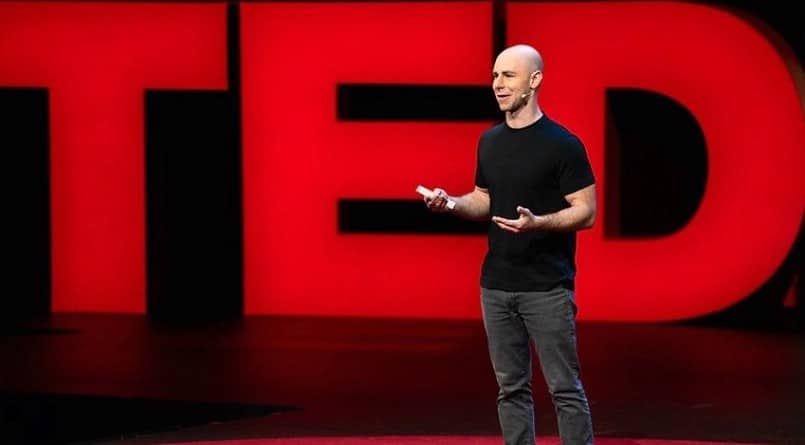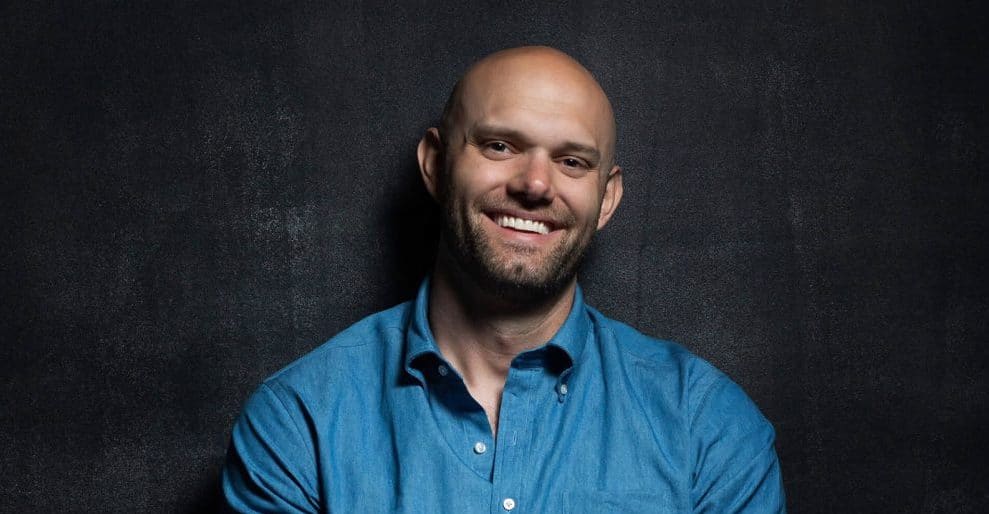Words Of Wisdom: What pop psychology borrows from the Bible
Leila Rita Tan for City News // July 19, 2022, 7:27 pm

Are we quoting pop psychologists like Brené Brown with greater frequency and accuracy than the Scriptures? Here's how they differ.
Who doesn’t want to live a better life?
One of the greatest frustrations mankind faces is to go through life without meaning and significance. Jokes like “eat sleep work repeat” make light of this scenario, while millions turn to motivational sources to “spark joy” in their daily existence.
Does this sound familiar? If you have read your Bible, King Solomon captured this existential ennui well in Ecclesiastes. He called it “meaningless, a chasing after the wind”.
Merely repackaged … or not?
Given the proliferation of social media platforms like Instagram and TikTok, Christians and non-Christians alike now have daily (or throughout-the-day) access to content related to motivation, self-help, self-care, positive thinking and personal learning.
Unfortunately, Solomon is not alive today to post his proverbs on social media – it’s likely he would have gained a huge audience and several book deals. Instead, we have pop psychologists and motivational speakers who feed us feel-good epithets on our Instagram feed, or send us a boost of motivation with a 60-second TikTok video.
If Solomon were alive today to post his proverbs on social media, it’s likely he would have gained a huge audience.
This is not a bad thing: many church leaders and Christian personalities have also taken to social media to bring God’s wisdom or a word of encouragement to their followers.
However, social media does not distinguish between Biblical and secular wisdom. In addition, if one knows Scripture, many “new” ideas spouted have their roots in the Bible. As Solomon said, “There is nothing new under the sun.”
What is pop (or popular) psychology? It comprises psychological ideology, therapy or techniques that gain popularity through media – books, TV shows or social media. Professional psychologists often disregard pop psychology as its recommendations may not arise from rigorous scientific research.
But that hasn’t stopped pop psychology from becoming popular. Hence, it’s important that one uses discernment and wisdom when consuming such media. That is also the case for all online content that by “passing along” that information, we may be advocating for it, whether intentionally or not.
So how should a Christian consume such content and stay in keeping with Biblical values?
Let’s take a look at some of the most widely-shared motivational personalities today, and their content that mirrors what the Bible says.
Brené Brown on shame
It’s likely that on any given day, you will see at least one friend share a Brené Brown quote on their Instagram feed. She is an American research professor, lecturer, author and podcast host who became famous after her TED talk in 2010, titled The Power of Vulnerability. It is one of the five most viewed TED talks of all time.

Though not a pastor, Brene Brown started a 15-minute church service on IG Live in March 2020 when the pandemic started.
Her books have spent many months on the bestseller lists. Dr Brown is a Christian and a member of the Episcopal church.
Brené Brown on shame: “Shame is the most powerful, master emotion. It’s the fear that we are not good enough.”
Empathy is a good solution but not the antidote. Believers must remember that only Jesus can take away sin and shame.
She draws from her personal experience of the effects of shame in her life, postulating that shame correlates with many mental health issues such as depression, anxiety and eating disorders.
She differentiates it from guilt: Shame focuses on identity and self, while guilt focuses on behaviour.
Her suggested antidote to shame is empathy, which she sums up as answering “me too” to another person’s struggle.
Shame grows in secrecy and in isolation; but when we find true connection through empathy, we find our way back to each other and become whole.
What the Bible says about shame: It is a key theme in the Bible. Christians believe that because of Adam and Eve’s fall, we inherit a sense of unworthiness, that we can never match up or are good enough. No matter how hard we try, we cannot succeed by ourselves. This concurs with Brené Brown’s findings on the devastating effects of shame.
The Bible’s antidote to sin and the subsequent shame is the blood of Jesus.
However, Christians understand that the main culprit is sin — shame is a result of that sin.
The Bible’s antidote to sin and the subsequent shame is the blood of Jesus. Knowing that our new and true identity is in Him, we are brought back into intimate loving connection with God when we repent.
Only with Jesus can we live a victorious life, not by our own merit but because of His goodness and grace.
“Therefore, there is now no condemnation for those who are in Christ Jesus, because through Christ Jesus the law of the Spirit who gives life has set you free from the law of sin and death.” (Romans 8:1-2)
Brown’s solution to shame is found in community with others, which ties in with the idea of being in the body of Christ. While this is good advice, believers must remember that only Jesus can take away sin and shame.
However, Brown’s writing reminds one of how Jesus identified with sinners even though He Himself is completely perfect and sinless. Similarly, we should reach out to others and offer them that solidarity.
Adam Grant on thinking
Adam Grant is a Wharton University professor and an organisational psychologist who focuses on motivation, meaning and creativity. He has authored five books, the most popular being Think Again, which has been widely quoted, even by Christian leaders.

Organisational psychologist Adam Grant’s TED talks have gotten over 25 million views on topics such as “Are you a giver or a taker?” and “The surprising habits of original thinkers”.
He proposes four thinking modes people use to solve problems: Preacher (“I’m always right”), prosecutor (“I’ll prove you wrong”), politician (“I’ll win you over”), scientist (“Where might I be wrong?”).
If a certain way of thinking does not bear a good result, he encourages his readers to change and shift to a more productive, fruitful way of thinking.
That, essentially, is what King Solomon says in Proverbs 23:7, “For as he thinks in his heart, so is he.”
Adam Grant on thinking: “Thinking like a scientist involves more than just reacting with an open mind. It means being actively open-minded. It requires searching for reasons why we might be wrong – not for reasons why we must be right – and revising our views based on what we learn.”
With an awareness of God’s will and plan for us, we adjust and make changes to our thoughts and lifestyle.
Grant teaches that there is great value in thinking like a scientist, that is, to be challenged in one’s thinking. This is not limited to people in power, he says.
Often, the ordinary person might agree with this principle of being challenged to see how he may be wrong, but in practice, it is not done much, as human nature is to prefer to hear agreement and feel good.
That is precisely what makes social media so addictive, seeing your posts “Liked” by many.
What the Bible says about thinking: “Do not conform to the pattern of this world, but be transformed by the renewing of your mind. Then you will be able to test and approve what God’s will is—his good, pleasing and perfect will.” (Romans 12:2)
Christians should, by nature, think differently from the world. The Bible reminds us not to be swept away by the culture – social, work, politics – around us but to allow the Holy Spirit to direct our thoughts and actions. Intentionally taking time to be introspective and to be aware of our own behaviour and intentions can help us finding greater meaning – doing what God wills – in our everyday life.
1 Corinthians 2:16 says that “we have the mind of Christ”. This means we have an awareness of His will and plan for us, and we adjust and make changes to our thoughts and lifestyle with that knowledge.
For Christians, true meaning is found in living a life for God according to His will, and we trust that other success will follow.
James Clear on habits
James Clear famously says “All big things come from small beginnings”, which directly borrows from Zechariah 4:10: “Do not despise these small beginnings, for the Lord rejoices to see the work begin, to see the plumb line in Zerubbabel’s hand.”
To be a Christian is to be like Christ and to take on His habits.
Small beginnings may be humble but over time, a good habit will become a great work.
Habits, decision-making and continuous improvement are the simple yet powerful topics that Clear focuses on.
His book Atomic Habits has sold over 8 million copies worldwide and is described as a simple step-by-step guide for forming good habits that stick and for breaking bad ones. He also regularly speaks at Fortune 500 companies.
The content of his books and talks are based on the practice he had mastered of exercising consistent habits.

Clear’s habit-building formula arose from a horrifying accident he had as a teenager, when a schoolmate accidentally smashed his face in with a baseball bat. Against all odds, by working on the same, small physical tasks every day, Clear not only recovered but went on to join his college baseball team and become the top athlete at Denison University. He was accepted onto the ESPN Academic All-America Team.
James Clear on building habits: “Getting one percent better every day counts for a lot in the long run.”
Clear’s theory is that the success we achieve in life is because of our “atomic habits”. An atomic habit is a regular practice that is small and easy to do, but it has a great impact on our life because of the compounding effect of repetition.
If we can stick to it, over time, it will lead to great success, he explains. By equal measure, we have bad habits which we find ourselves repeating.
What the Bible says about habits: While it doesn’t explicitly call them “habits”, there are many regular practices that are encouraged. The most obvious example is Jesus Himself, who regularly withdrew to a mountain to pray by Himself – that is a habit of prayer.
In fact, to be a Christian is to be like Christ, to take on His habits of prayer, fasting, reading and memorising Scripture, practising silence and solitude, to name a few. After all, “Whoever claims to live in him must live as Jesus did.” (1 John 2:6)
“You get what you repeat” is a take on Galatians which says, “God cannot be mocked. A man reaps what he sows.”
In his epistles, Paul exhorted believers to continually do the right things.
He commanded the Thessalonians: “Rejoice always, pray without ceasing” (1 Thessalonians 5:16-18). He reminded the Ephesians to be “always giving thanks to God the Father for everything, in the name of our Lord Jesus Christ” (Ephesians 5:20), and to “pray in the Spirit on all occasions with all kinds of prayers and requests.” (Ephesians 6:18)
To the Galatians he said, “And let us not grow weary of doing good, for in due season we will reap, if we do not give up.” (Galatians 6:9)
Paul encourages believers to stay on path and commit to living according to God’s ways; even when the results are not immediate, they will bear fruit in the end.
Clear’s quotable quote “You get what you repeat” is a take on Galatians 6:7-8: “Do not be deceived: God cannot be mocked. A man reaps what he sows. Whoever sows to please their flesh, from the flesh will reap destruction; whoever sows to please the Spirit, from the Spirit will reap eternal life.”
The actions we sow will reap success or failure – it is entirely up to the individual. Therefore, sow good seeds of holiness, and reap a character like Christ’s.
To read or not to read?
There is much that can be gleaned from the writings of Brené Brown, Adam Grant and James Clear, among many other motivational authors.
Who are you following – Jesus or a human? There is no replacement for Holy Scripture, which is God-breathed.
As we have explored here, much of the wisdom echoes what we have already read in the Bible, sometimes going a step further by contextualising the tips for our modern culture, workplace, home and even church.
We can enjoy the wit and wisdom of such authors – it feels great when some quotes capture with such precision what we are feeling. When these quotes align with our understanding of God’s word, even better!
We can be encouraged that all wisdom comes from God, and that He speaks through anything He wants, even bestselling authors.
That said, as believers, we must always continue look to the Bible as our main source of wisdom and strength. If you find you are quoting pop psychology more often and with greater accuracy than Scripture, you might want to take a step back and examine what habit you are building.
Who are you following more earnestly – Jesus or a human? There is no replacement for Holy Scripture, which is God-breathed.
“It is written: ‘Man shall not live on bread alone, but on every word that comes from the mouth of God.’” (Matthew 4:4)
This is an excerpt of a story first published on City News, a ministry of City Harvest Church and reproduced here with permission.
FOR MORE STORIES LIKE THIS:
“Are you happy?”: Dr Strange and the search for happiness through the multiverse
On the frontlines and far from home: Two foreign nurses draw comfort from giving comfort
We are an independent, non-profit organisation that relies on the generosity of our readers, such as yourself, to continue serving the kingdom. Every dollar donated goes directly back into our editorial coverage.
Would you consider partnering with us in our kingdom work by supporting us financially, either as a one-off donation, or a recurring pledge?
Support Salt&Light




